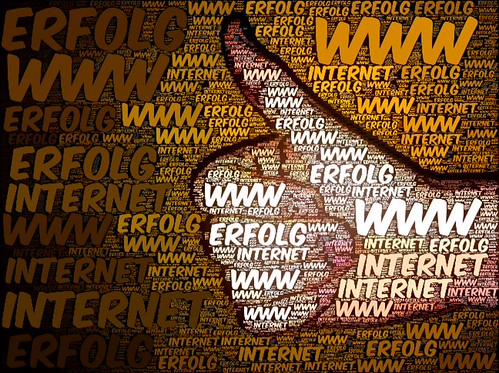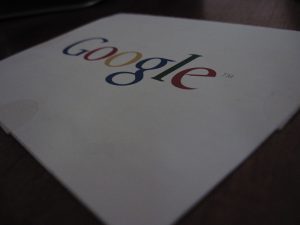
The Internet has developed for more than 30 years since the 1990s. As Turner (2021) said in the interview, some early structural prejudices still continue to affect today’s Internet culture. At the same time, there are some disputes about the impact of the Internet on structural inequality. This article will discuss how structural inequality affects the development of the Internet and whether the Internet will increase or decrease this inequality.
Structural inequality
Structural inequality refers to the unequal status of a group relative to other groups. This inequality is created by the dominant social institutions, including housing, health care, employment and education discrimination, which can be continued and strengthened due to inequality in roles, functions, decision-making, rights and opportunities (ESCWA, 2016).
.
Inequality affects Internet development
There will be a gap between different countries in terms of scientific and technological level and economic strength. Therefore, this inequality will also be reflected in the development of the Internet.
For example, the United States is a leading country in all aspects, so the United States has a lot of capital. These capitals enable the United States to establish or invest in some large Internet companies, resulting in a large number of Internet giant companies collectively settled in the United States, such as Silicon Valley. According to IBISWorld (2021), by 2021, there were 1356 Internet service provider enterprises in the United States, an increase of 5.3% over 2020. In contrast, some backward small countries, such as Afghanistan in the Middle East region, have no conditions to develop Internet technology. Therefore, a powerful country like the United States actually dominates the development of Internet culture.

“Google” by Cesar Solorzano is licensed under CC BY-NC-ND 2.0
An example is that most countries are using Google browser. As the most popular browser in the world, Google browser accounts for 68.26% of the browser market share. Therefore, the content on Google will undoubtedly affect most Internet users. Vaidhyanathan (2011) also mentioned in his book that Google has penetrated into our culture, affecting personal attention and behavior, and has even become synonymous with the Internet. In addition, Alberto & Turner (2021) also mentioned in his article that the current Silicon Valley still continues the culture dominated by white men and the middle class, advocates “bro-culture” and excludes ethnic minorities. This early inequality in Silicon Valley has always existed and continues to affect today’s Internet culture.
Does the Internet increase or reduce inequality?
Some would argue that the Internet can reduce this structural inequality. For example, in terms of education, online learning can break the physical limitations of face-to-face learning. Famous universities such as Harvard have free public courses on the Internet, so that students from other schools can also have access to this high-quality education. The existence of the Internet can share knowledge and resources, and may promote equality.
However, the Internet penetration rate will be restricted by the current region, income, social class and other factors. Some backward areas or low-class people do not have the opportunity to use the Internet, but exacerbate this gap. ITU (2020) 2019 data show that 83% of individuals in Europe use the Internet, while only 29% in Africa. This gap still exists in towns and villages. The number of people using the Internet in urban areas around the world is about twice that in rural areas. Take education as an example. There are rich educational resources on platforms such as YouTube, Facebook and Google. Even more and more school learning materials are provided by these commercial media companies. But students in really backward and poor areas have no access to the Internet, and not all online learning materials are free. Especially after the outbreak of Covid-19, many schools closed. In the 127 countries surveyed, 73% of governments are using online platforms to provide education. This will exacerbate the learning crisis of residents in low-income countries.
In addition, the Internet will also lead to inequality of employment opportunities, and even further aggravate gender inequality. At present, many companies recruit through online channels, which will lead to fewer opportunities for those who can’t use the Internet. ITU (2020) estimates that globally, men are about 12% more likely to use the Internet than women, and men already have more opportunities and higher wages in the workplace, which may exacerbate the inequality between men and women in employment.
Internet users are also affected by algorithm bias, which exacerbates inequality between gender, race and enterprises. For example, as a very influential Internet enterprise, the recommended search related words that jump out when searching in Google search engine also contain stereotypes. For example, when searching for women, there will be associated words of “women cannot drive” (Noble, 2018). When searching for blacks, there will be negative words such as crime and poverty (Noble, 2018). When searching for black women, there will be a lot of information related to sex (Noble, 2018). These searches are like a “mirror” reflecting the gender and racial prejudices that still exist in most people. At the same time, this information may also play a guiding role and deepen the stereotype of some groups in the hearts of Internet users. Because information monopolies such as Google only focus on promoting their own commercial interests, the recommended content in the search engine is often high click through rate or paid advertising of large companies (Noble, 2018). Those minorities cannot change their image in the network, and small companies cannot let themselves be seen by more people, resulting in further aggravation of inequality.
Conclusion
Generally speaking, the existing structural inequality will make strong groups more able to dominate the culture and technology of the Internet, thus affecting the development of the Internet; Due to different Internet penetration and algorithm bias, the existence of the Internet is also further deepening this unequal power. Therefore, it is necessary to review and supervise the content. The government can try to carry out legal supervision, and large information enterprises such as Google should also bear certain social responsibilities, otherwise we will enter a network era full of race, gender discrimination and class prejudice.
This work is licensed under a Creative Commons Attribution 4.0 International License.
References
Economic and Social Commission for Western Asia (ESCWA), (2016). structural inequalities.
https://archive.unescwa.org/structural-inequalities
Lusioli, A &Turner, F. (2021). “It’s an Ongoing Bromance”: Counterculture and
Cyberculture in Silicon Valley—An Interview with Fred Turner. Journal of
Management Inquiry, 30(2), 235-242.
IBISWorld. (2021). Internet Service Providers in the US – Number of Businesses 2005–2027.
ITU. (2020). Measuring digital development Facts and figures.
https://www.itu.int/en/ITU-D/Statistics/Documents/facts/FactsFigures2020.pdf
Noble, S. U. (2018). A society, searching. In Algorithms of Oppression: How search engines reinforce racism. pp. 15-63. New York: New York University
Vaidhyanathan, S. (2011). The Googlization of Everything. University of California Press.